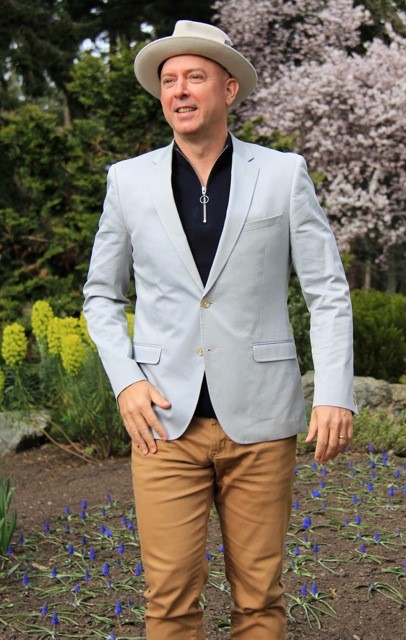The Newsroom
Q&A: Dan Pontefract, author of “Open to Think”
Dan is the founder and CEO of The Pontefract Group, a firm that improves the state of leadership and organizational culture. He is the best-selling author of three books: Open to Think, The Purpose Effect and Flat Army. A renowned speaker, Dan has presented at four different TED events and also writes for Forbes, Harvard Business Review and The Huffington Post. Dan is an adjunct professor at the University of Victoria, Gustavson School of Business and has garnered more than 20 industry awards over his career.
What adjective best describes you?
My infinitely better half might say uxorious, but I’ll go with affable.
In two sentences or less, can you tell readers something unique about your line of work?
I have the privilege of speaking to the C-Suite, front-line employees and everyone in between about the state of their organizational culture. The insights are one of the ways I get to employ one of my mantras: Ancora Imparo. (Latin for “I am still learning.”)
Why did you write Open to Think?
I felt it had to be written. The subject matter begged me to investigate. Society has become overly taxed and stressed, confusing busyness with productivity. A culture of freneticism has overtaken most walks of life, with poor decision-making, a lack of creative thinking, and morale issues the unfortunate result. A certain portion of the population is doing the opposite; sitting on the fence too long, unable to make a decision and move forward. A reminder on how to think was necessary. As a father of three children in grades 6, 8, and 10, I do not want to see them living a life without knowing the importance of balancing reflection with action. Having the fortune of working with many organizations, I also wanted to provide a crisis inflection point for leaders and employees alike. The way we are currently operating is unsustainable. We are suffering, and our quality of work (and arguably our life) is deteriorating. Ultimately Open to Think is a call to change our current thinking behaviours.
What do you hope readers will take away from this book?
The manner in which we think is controllable; it’s a mindset aided by good habits. But we have to learn the difference between good and bad thinking habits. Open Thinking—as I refer to it in the book—comes to fruition by the constant balance of reflection and action. Within those two key aspects are three types of thinking: Creative Thinking, Critical Thinking, and Applied Thinking. I haven’t invented a new way of transportation. It’s a book that rekindles the positive thinking habits of yesteryear, blended with the societal realities of the 21st century, to ultimately bring about a better way of operating in today’s “always on” culture.
What’s the best piece of advice you’ve been given?
Never get fooled by the headlines for it is the trend lines we ought to be scrutinizing.
